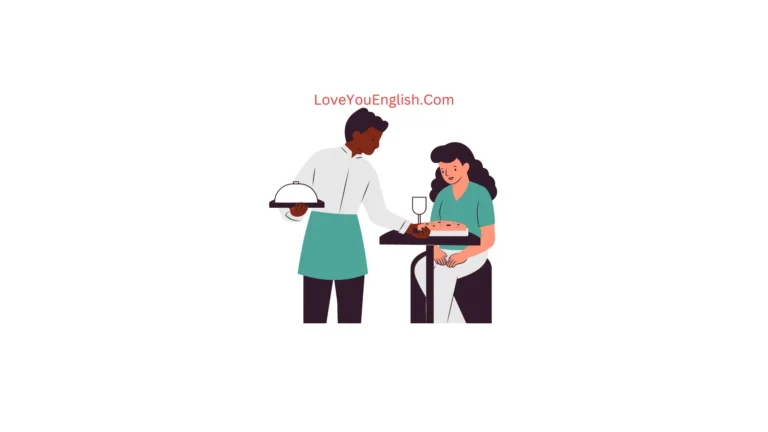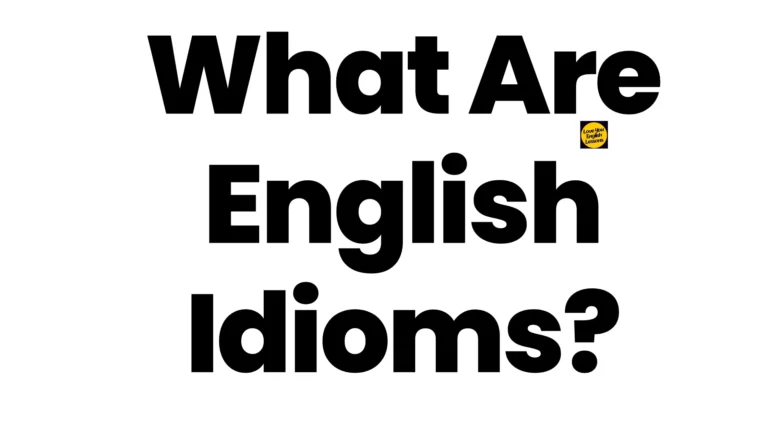25 English Idioms About Men and Women
25 English Idioms About Men and Women
Idioms are phrases that have a figurative meaning different from the literal meanings of the individual words.
Many idioms are related to men, women, and relationships between the genders.
Here are 25 common idioms about men and women:
1. A man’s home is his castle
This means a man’s house is a place where he has authority and can do as he pleases, just like a king in his castle. It suggests a man’s home is his private domain.
2. Act like a man
This idiom means to behave in a brave, responsible and mature way, as society traditionally expects of adult men. For example, “Stop crying and act like a man.”
3. All men are created equal
This means that all men (and more broadly, all people) should have the same rights and opportunities from birth, regardless of their backgrounds.
4. An old wife’s tale
This refers to a saying, belief or superstition that is traditionally repeated by older women but has no factual basis. For example, “Swallowing gum stays in your stomach for years is just an old wife’s tale.”
5. Battle of the sexes
This means the conflict, competitiveness or contrasts that can exist between males and females, especially in relationships and society’s gender roles.
6. Blind leading the blind
When incompetent or unknowledgeable people guide others who are equally ill-informed. This can refer to matters between men and women, like “With neither of them knowing how to communicate, it was the blind leading the blind in their relationship.”
7. Buy a pig in a poke
This means purchasing something without inspecting it first, like “marrying” a partner before really knowing them. It suggests acting blindly when choosing a spouse.
8. Cradle robber
This refers to a man who pursues or becomes involved with a much younger woman, likening it to “robbing the cradle.”
9. Damsel in distress
This refers to a young woman perceived as helpless and in need of rescue by a man, a common trope in older stories and fairy tales.
10. Dressed to kill
This means being dressed very attractively and fashionably, often suggesting dressing to attract potential romantic partners of the opposite sex.
11. Every man for himself
This means individuals should pursue their own interests alone without considering others, regardless of gender relationships or implications.
12. Fair play to her
This acknowledges an impressive accomplishment by a woman, like “She got the top score on the exam – fair play to her!”
13. Hell, hath no fury like a woman scorned
This suggests there is nothing more destructive and angrier than a woman who has been rejected or treated unfairly by a man.
14. He wears the pants in that relationship
This means the man has the commanding role and makes the major decisions for both partners in that relationship.
15. The honeymoon is over
This refers to the initial period of joy and romance passing in a marriage or relationship, and more difficulties arising over time.
16. Husband-to-be or wife-to-be
This simply refers to one’s future spouse in an engagement period before marriage.
17. Ladies’ man
This is a man who constantly pursues romantic relationships with many different women, sometimes implying deception or manipulation.
18. A male chauvinist pig
This is an offensive way to describe a man who believes men are superior to women and treats women in a disrespectful way.
19. Man up!
This slang phrase means to summon courage and face difficulties in a stereotypically masculine way, as opposed to acting overly emotional or timid.
20. The maternal instinct
This refers to the biological urge some women feel to become mothers and nurture children.
21. Men are from Mars, women are from Venus
This idiom humorously suggests the different genders act so distinctly from each other that they seem to come from different planets.
22. Mind your Ps and Qs
This means to mind your manners and behave politely, especially around women and in formal, mixed company of men and women.
23. Mr. Right
This refers to a woman’s ideal romantic partner and potential husband who fulfills all of her preferences.
24. Shrewish woman
This derogatory term labels an assertive, ill-tempered, scolding woman as not acting how a woman traditionally “should.”
25. Wolf whistle
This refers to a loud whistle used by men to loudly indicate they find a passing woman very attractive, though often seen now as rude.
__________________________________
That’s all about 25 common idioms relating to men and women.
Many of these idioms reflect traditional gender roles and stereotypes that may or may not still hold true today.
But they provide insight into how language expresses historical perspectives about the sexes.
____________________







